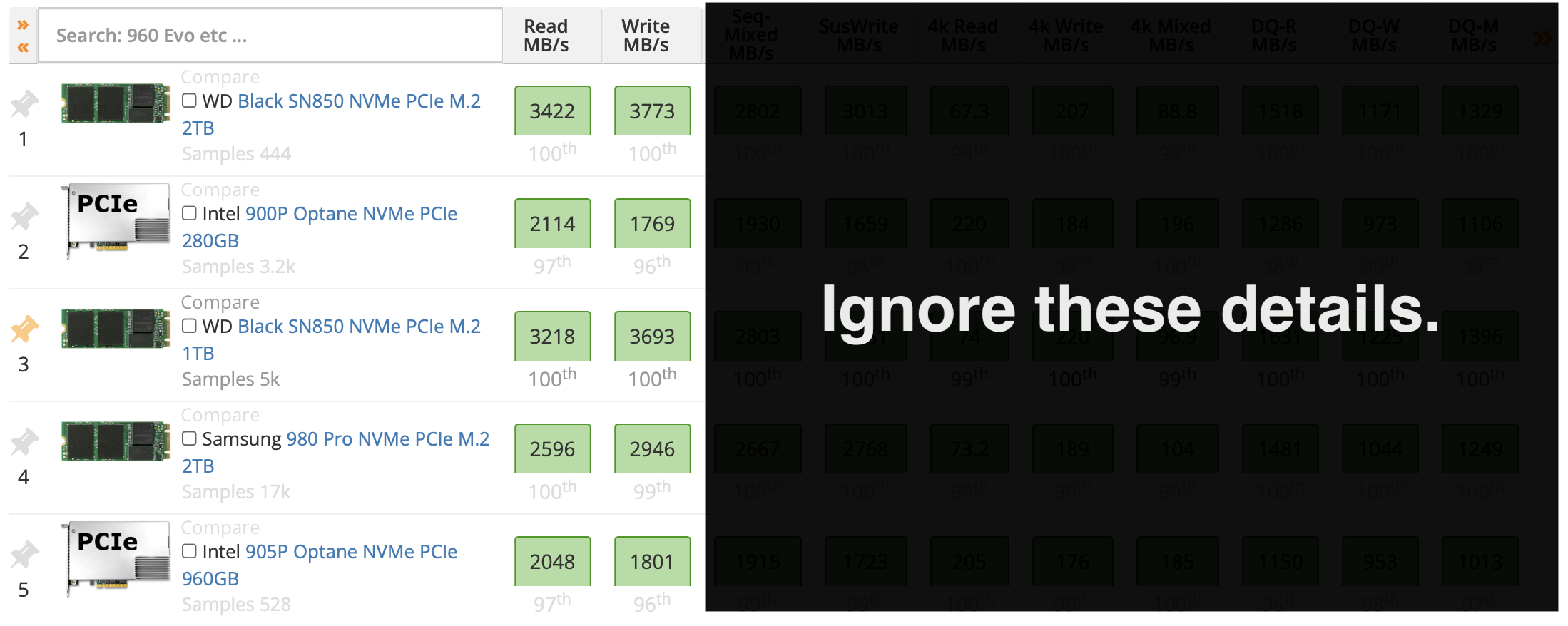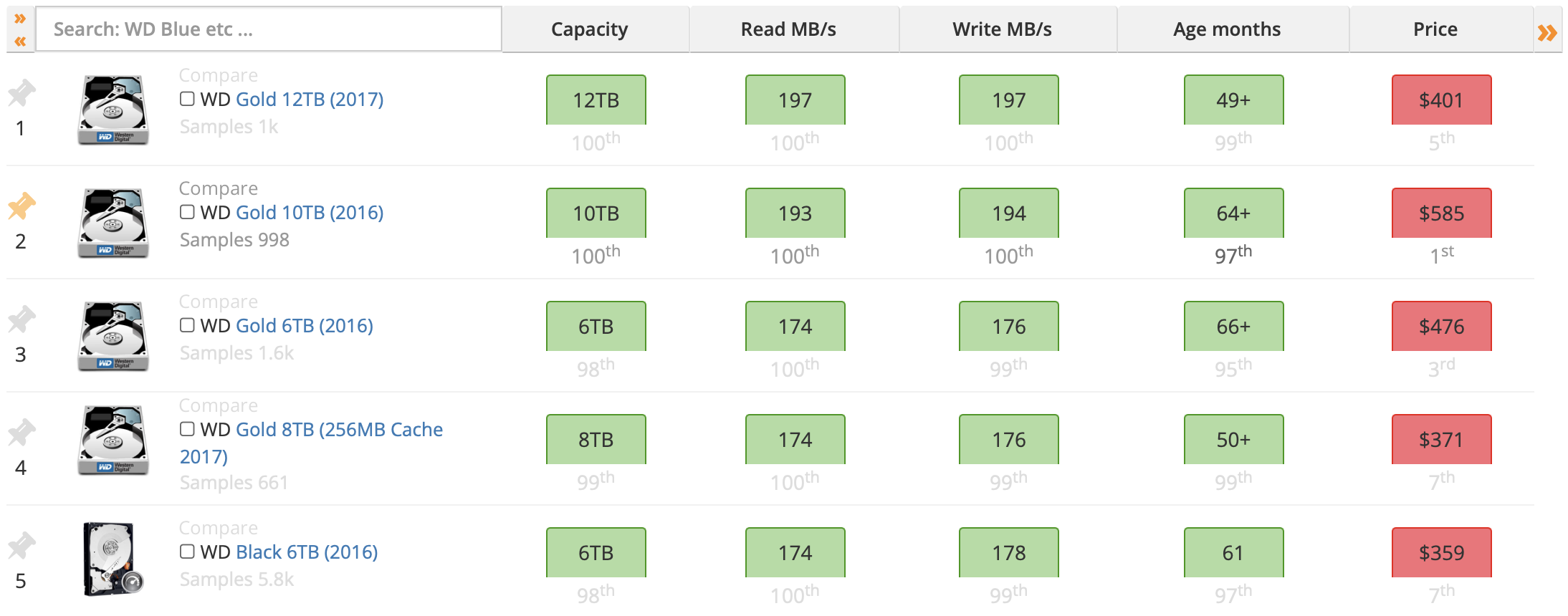Speed#
How you "consume" HDDs and SSDs in Cloud and virtualised environments will depend heavily on the use case. In fact you can ask a single question to determine which one of the two you need for your data: what data will you be storing on the drive and how quickly do you need to access it?
Because HDDs have moving parts inside of them - the platters and read/write head - they have speed limitations that are far surpassed by a Solid State Drive (SSD). In most cases the platters rotate at 7,200 RPM. In (most) laptops they rotate at 5,400 RPM. In servers the HDDs will rotate at higher speed, as high as 15,000 RPM in fact.
In contrast to this, SSDs are much, much faster than HDDs due to not having moving parts inside of them. In HDDs, the moving components act as the limiting factor to the speed of the drive. SSD don't have moving parts at all, so the time to write and read information to and from an SSD based drive is massively improved.
The speed between an HDD and an SSD can be very easily measured by anyone with access to both devices. This screenshot shows you the current fastest SSDs on the consumer market, along with some contenders:
Note
When we "read" and "write" (speeds), we're talking about getting data stored on the drive (read), and putting data on the drive (write). The "read speed" is how fast we can read things from the drive. The "write speed" is, as you might have guessed, how quickly we can write data to the drive.

And here are the same tests done to measure the top five HDDs on the consumer market:

Note
The columns in the screenshots will be different due to the fact you measure each drive differently. It's differently technology, after all.
The thing to observe here is the read and write speeds. The #1 SSD has a read speed of 3,422MB per second versus the #1 HDD has a read speed of 197MB per second. And the same story is true of the write speeds too - SSDs absolutely smash HDDs out of the park with regard to the speed.
An M.2 NVMe SSD is currently the fastest type of SSD you can buy. This is because the chip technology itself is very fast, but also because of how it's connected to the system. But don't worry about this for now as this isn't a level of hardware understanding you need. You'll never see this stuff being mentioned in AWS, Azure or a virtualised environment.
In short, SSDs are massively faster than HDDs, and NVMe based SSDs are the fastest available. But speed isn't everything. Despite being slower than SSDs, HDDs do have one very big advantage (for now): price.